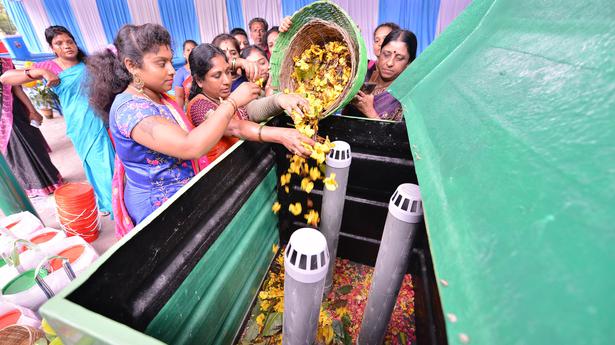
Mandatory in-situ processing of biodegradable waste by bulk generators
The Hindu
Urban Development Department approves BBMP’s request seeking gazette notification
The Bruhat Bengaluru Mahanagara Palike (BBMP) has issued a circular mandating in-situ processing of biodegradable waste generated by bulk waste generators either through composting, biomethanisation or other methods approved by the Ministry of New and Renewable Energy, Central Pollution Control Board or Karnataka State Pollution Control Board.
The Urban Development Department has also approved the civic body’s request to issue a gazette notification which would help the BBMP in enforcement. A gazette notification is expected to be issued soon.
The circular mandates segregation and separate collection of all streams of waste by bulk generators. The sanitary waste is to handed over to the respective biomedical waste management service providers authorised by the CPCB/KSPCB at rates prescribed. The segregated dry waste has to be sent to the nearby dry waste collection centres or to the authorised bulk waste service provider in the zone at their own expense.
Bengaluru generates nearly 5,000 tonnes of waste, of which more than 1,500 tonnes are generated by bulk waste generators. As per the Solid Waste Management byelaws, in-situ composting is mandatory for bulk waste generators. BBMP had been pushing for the notification to be issued as much of the waste generated in the city is landing up in quarry pits. This is against the SWM Rules, 2016, regulations of the National Green Tribunal and orders of the High Court of Karnataka.
Bulk waste generators are those who generate more than 100 kg of waste every day, including gated communities and multi-dwelling units with more than 100 residences or flats, industries and factories, hotels, IT parks, marriage halls, supermarkets and malls, hostels and government office complexes among others.













